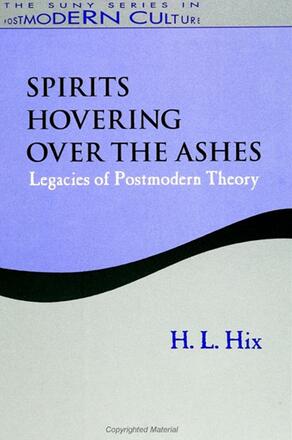
Spirits Hovering Over the Ashes
Legacies of Postmodern Theory
Alternative formats available from:
This book explores the consequences of postmodern theory and answers the question, "What did postmodern theory begin?"
Description
In a series of topical explorations structured like a sonata, H. L. Hix identifies the consequences of postmodern theory through such issues as grief, freedom, beauty, obscenity, love, and sex to its axiological consequences. A basic motif, postmodernism's distribution of meaning over space rather than time, recurs throughout the chapters, each of which in some way amplifies the book's underlying theme, virtue. The "exposition" of the theme in the first ten chapters receives its "development" in the chapter, "Postmodern Virtue," and its "recapitulation" in the aphorisms of the final chapter.
By choosing names like "deconstruction," postmodern theory postures as that which shakes foundations. But any declaration of an end is also a declaration of a beginning, and Spirits Hovering Over the Ashes pushes past the posturing to ask what foundations postmodern theory has laid.
H. L. Hix is Associate Professor of Philosophy at the Kansas City Art Institute.
Reviews
"The book is rich with ideas which seem immediately apt and 'right,' yet which are also challenging and worthy of serious further rumination. I thus find Hix's ideas 'compelling' in the sense he explicates in the book: for me their force does indeed arise from 'the combination of recognition and confrontation. ' This is a beautiful and challenging book. It was an absolute pleasure to read and I most enthusiastically recommend publication. " — Andrew Cutrofello, Loyola University of Chicago